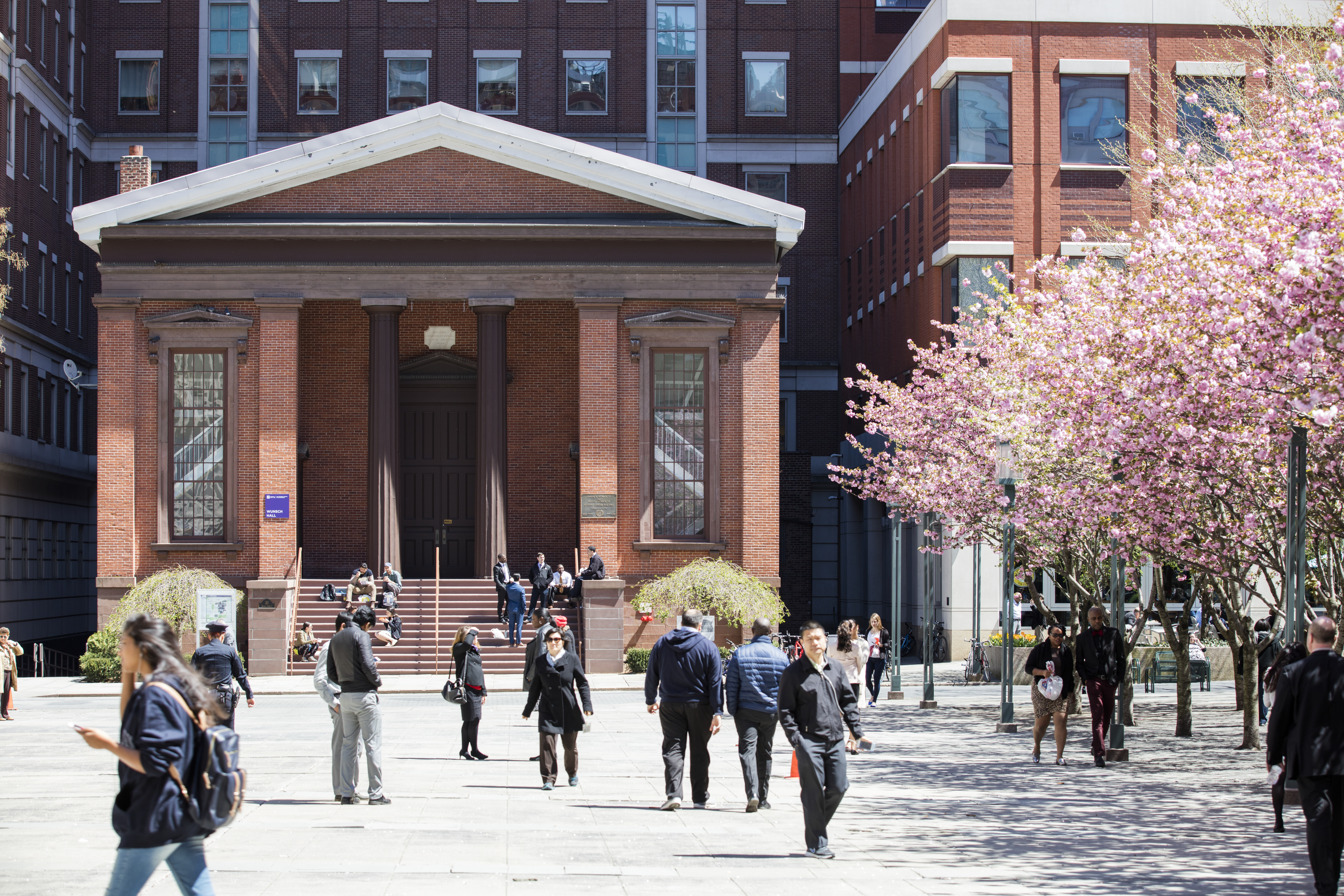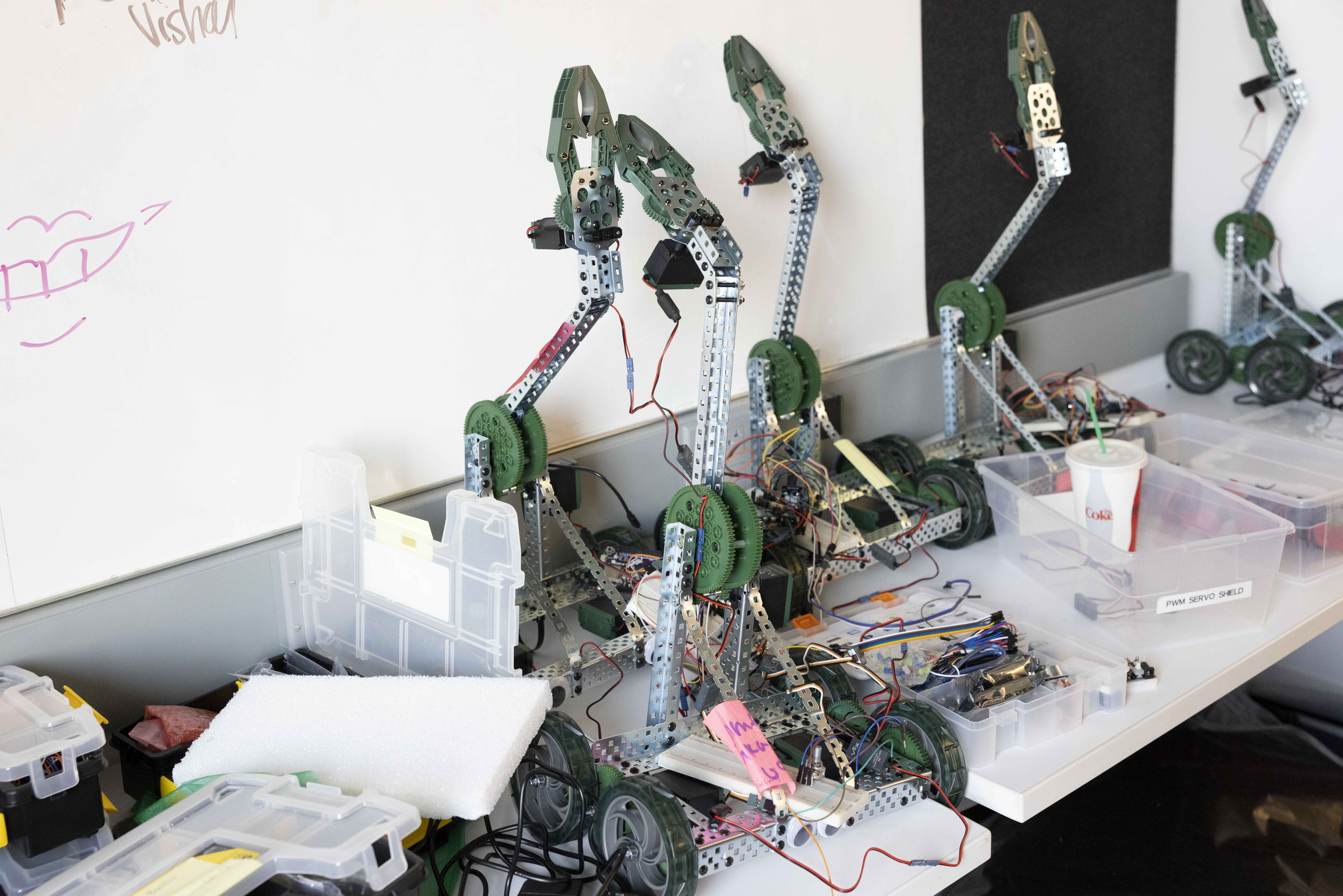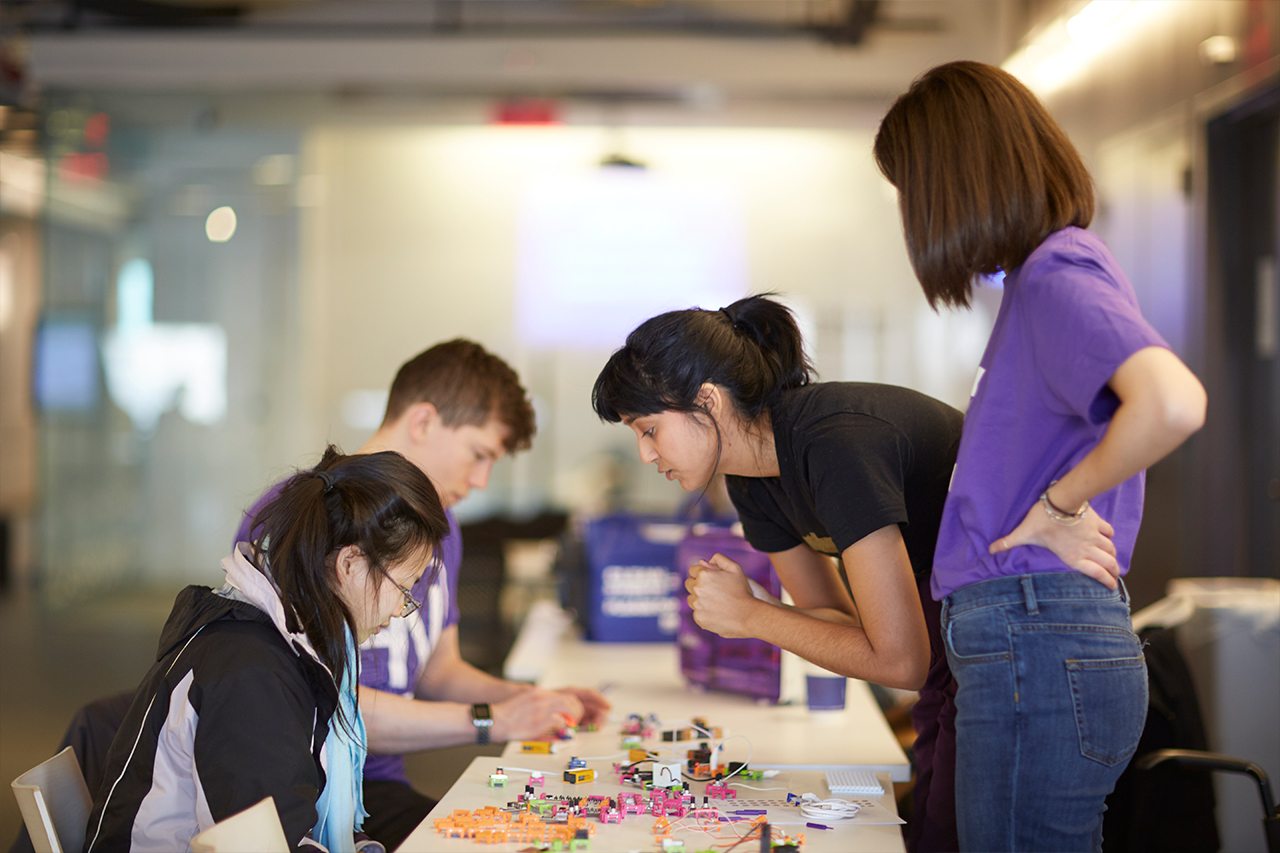Published November 29, 2023
At NYU Tandon, Undeclared Students Can Take Their Time
The TL;DR
- Students who are sure about the NYU Tandon School of Engineering but unsure about their major can apply undeclared.
- Undeclared students gain access to a range of resources to help them choose a major, including the Undeclared Major: Summer Series, three group workshops, and individual meetings.
- All undeclared students are expected to declare a major by the end of their first year.

While some people know their career goals by age 10, many need time to experiment and experience before choosing an area of focus. That’s why NYU promotes exploration across schools, subjects, and borders. And at the NYU Tandon School of Engineering, a similar dynamic exists. Here, students can apply undeclared, exploring the school’s academic offerings during their first year. “You don’t need to feel pressured to choose a major. We’ll get you on the right path,” promises Brittany Aranowitz, the assistant manager of first-year advising and undeclared major adviser at NYU Tandon. “In fact, there’s no such thing as a right or wrong major. You can turn back or move into a different lane at any time.”

The Undeclared Process
When a student applies undeclared to Tandon, they gain access to a range of resources to help them find the right fit. Throughout the summer, they participate in the Undeclared Major: Summer Series. This series of online assignments helps students explore their interests, strengths, and values in the context of their goals. Next, the on-campus learning begins with three group workshops and individual meetings. The first workshop provides an overview of each major. Then, in the second, students connect with the Wasserman Center for Career Development. Finally, in the third workshop, they learn about decision-making styles.
“The goal of undeclared programming is to guide students through the major decision-making process. At the same time, individual and group meetings assuage students’ anxiety about selecting a major,” explains Aranowitz. Additionally, most undeclared students take Introduction to Engineering and Design for direct experience in various engineering disciplines. As students approach the end of their first year, they meet with their prospective adviser to learn more about their future major’s curriculum and potential opportunities. All undeclared students are expected to declare a major by the end of their first year.

Beginning the Undeclared Journey
As a senior in high school, Alex Yang knew that he wanted to go to NYU. After all, his brother went to the NYU Stern School of Business and loved it. “Still, I didn’t know what I wanted to do in life or what to major in,” he shares. While he eventually decided on engineering, he wasn’t sure what branch would be the best fit. “So I decided applying undeclared to Tandon would give me the most freedom to ‘make the right choice.’”
Now a first-year student, Alex is exploring different fields and networking with everyone. “The main benefit of being undeclared is the freedom to explore,” he reflects. “Plus, we get extra support and workshops designed specifically to help us choose a major.” Today, Alex is happy with his choice to apply undeclared. “I’m still discovering interesting new majors through my friends. For instance, I didn’t know that Integrated Design and Media and Business and Technology Management existed. I’ve narrowed my focus to Computer Science or Computer Engineering, but I’m still unsure which will be right for me. I just love the freedom of being undeclared.”

From Undeclared to Computer Engineering
Daniel Bathel, NYU Tandon Class of 2026, always enjoyed math and science. So applying to Tandon just made sense. “However, I soon realized that making the final decision about my major was a lot harder than I’d anticipated,” he shares. Daniel decided to apply undeclared so that he’d have time to explore his options. “I didn’t want to quickly regret my decision if I chose a major and ended up not enjoying it,” he adds. “Then I’d have to change all my classes and possibly pay for classes I wouldn’t need.”
Throughout his first semester, he took full advantage of the many resources available to undeclared students, narrowing his options after each workshop and meeting. “I didn’t want to focus on just computer science or just math and physics; I wanted a blend of everything. Plus, I wanted to get hands-on experience working with circuits and other personal projects.” Finally, he decided: he is a Computer Engineering major. Reflecting back, Daniel is glad he applied undeclared. “The flexibility relieves a lot of the stress of choosing a major when entering college.”



